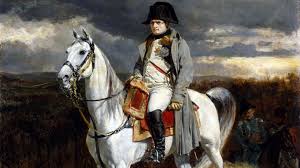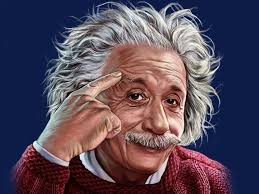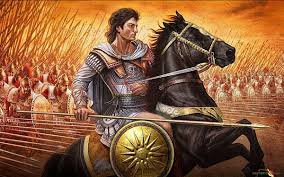Throughout history, many figures have left indelible marks on the world with their achievements, ideas, and leadership. While their contributions are well-documented, there are often lesser-known, surprising facts about these famous historical figures that add intriguing layers to their stories. This article delves into some of these unexpected details, offering a fresh perspective on well-known personalities from history.
1. Napoleon Bonaparte: The Short Emperor Who Was Actually Average Height

Napoleon Bonaparte, often depicted as a short man with a commanding presence, was actually of average height for his time. The misconception about Napoleon’s height originated from differences between French and English measurements. Napoleon was approximately 5 feet 7 inches tall, which was standard for men of his era. This myth was perpetuated partly due to British propaganda and the confusion between the French “pied” and the British “foot.”
- Surprising Fact: Napoleon’s height was often noted as a source of humor and criticism, but it had no real impact on his military genius or leadership.
2. Cleopatra: The Queen Who Was Not Egyptian
Cleopatra VII, the last active ruler of the Ptolemaic Kingdom of Egypt, is commonly associated with Egypt, but she was not ethnically Egyptian. Cleopatra was of Macedonian Greek descent, descended from Ptolemy I Soter, one of Alexander the Great’s generals. Her lineage was a result of Alexander’s conquest of Egypt and the subsequent establishment of the Ptolemaic dynasty.
- Surprising Fact: Cleopatra embraced Egyptian culture and was the first of her dynasty to learn the Egyptian language, which helped solidify her rule and popularity in Egypt.
3. Leonardo da Vinci: The Polymath Who Left Many Projects Unfinished
Leonardo da Vinci, celebrated for masterpieces such as the Mona Lisa and The Last Supper, was a polymath with interests spanning art, science, engineering, and anatomy. Despite his brilliance, Leonardo was notorious for leaving many of his projects incomplete. He often pursued new interests before finishing previous ones, which resulted in numerous unfinished works and notes.
- Surprising Fact: Leonardo’s notebooks, filled with sketches, scientific observations, and inventions, reveal his fascination with diverse subjects, including flying machines and human anatomy, though many of these ideas were never realized during his lifetime.
4. Marie Curie: The Scientist Who Won Two Nobel Prizes in Different Fields
Marie Curie, renowned for her pioneering research on radioactivity, is notable for being the first woman to win a Nobel Prize and the only person to win Nobel Prizes in two different scientific fields. She received the Nobel Prize in Physics in 1903 (shared with Pierre Curie and Henri Becquerel) and the Nobel Prize in Chemistry in 1911 for her discovery of radium and polonium.
- Surprising Fact: Marie Curie’s groundbreaking work in radioactivity came with personal costs; she suffered from health issues related to radiation exposure, which ultimately contributed to her death from aplastic anemia.
5. Albert Einstein: The Genius Who Struggled with Language

Albert Einstein, one of the most influential physicists of the 20th century, is often associated with his contributions to the theory of relativity and quantum mechanics. Despite his immense intellectual capabilities, Einstein struggled with language during his early years. He was a late talker, which led to concerns about his cognitive development, and he initially found learning languages challenging.
- Surprising Fact: Einstein’s difficulties with language were eventually overcome, and he became proficient in several languages, including English, which he used extensively in his academic and public life.
6. Winston Churchill: The Prime Minister Who Won a Nobel Prize in Literature
Winston Churchill, known for his leadership during World War II, was also a prolific writer and historian. In 1953, Churchill was awarded the Nobel Prize in Literature for his historical writings and speeches. His literary works include volumes on World War II and a multi-volume history of the English-speaking peoples.
- Surprising Fact: Churchill’s literary prowess and historical insights were highly regarded, and his speeches, including the famous “We shall fight on the beaches” address, are celebrated for their oratory brilliance and inspirational impact.
7. Abraham Lincoln: The President Who Was a Wrestling Champion
Abraham Lincoln, revered for his leadership during the American Civil War and his role in ending slavery, was also known for his physical prowess in his younger years. Lincoln was an accomplished wrestler and was recognized for his strength and skill in the sport. He participated in numerous wrestling matches and was known for his agility and endurance.
- Surprising Fact: Lincoln’s wrestling career earned him a reputation for toughness, and he was described as a “champion wrestler” with a reputation for fairness and sportsmanship.
8. Benjamin Franklin: The Inventor Who Never Patented His Inventions
Benjamin Franklin, a Founding Father of the United States, was also a prolific inventor, known for inventions such as the bifocal glasses and the lightning rod. Despite his significant contributions to science and technology, Franklin chose not to patent his inventions. He believed that inventions should benefit society and not be confined by patents.
- Surprising Fact: Franklin’s decision to forgo patents was driven by his belief in the free exchange of knowledge and his desire to contribute to the common good rather than personal profit.
9. Florence Nightingale: The Nurse Who Was a Statistical Pioneer
Florence Nightingale, widely recognized as the founder of modern nursing, made significant contributions to the field of healthcare. Beyond her nursing innovations, Nightingale was a pioneer in statistics and data visualization. She used statistical graphics to present data on the impact of sanitary conditions in hospitals, which influenced public health policies.
- Surprising Fact: Nightingale’s work in statistics and her development of the “coxcomb chart” to illustrate mortality rates played a crucial role in improving hospital conditions and healthcare practices.
10. Alexander the Great: The Conqueror Who Promoted Cultural Exchange

Alexander the Great, known for creating one of the largest empires in history, was not only a military strategist but also a proponent of cultural exchange. His conquests led to the spread of Greek culture and ideas across vast territories, fostering the Hellenistic era, where Greek and local cultures blended.
- Surprising Fact: Alexander encouraged the intermarriage of his soldiers with local populations and adopted elements of the cultures he conquered, promoting a fusion of Greek and Eastern traditions.
Conclusion
The lives of famous historical figures are often viewed through the lens of their well-known achievements, but their stories are filled with surprising and lesser-known facts that add depth to their legacy. From Napoleon’s height misconceptions to Alexander the Great’s promotion of cultural exchange, these intriguing details provide a richer understanding of their impact on history. By exploring these lesser-known aspects, we gain a more nuanced appreciation of how these figures shaped the world in ways that extend beyond their most celebrated accomplishments.


